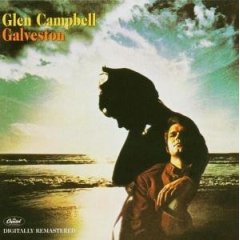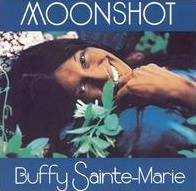Wilbur H. "Will" Jennings is an American lyricist. He is popularly known for writing the lyrics for the songs "Tears in Heaven" and "My Heart Will Go On". He has been inducted into the Songwriter's Hall of Fame and has won several awards including three Grammy Awards, two Golden Globe Awards, and two Academy Awards.

Buffy Sainte-Marie, is an Indigenous Canadian-American singer-songwriter, musician, composer, visual artist, educator, pacifist, and social activist. While working in these areas, her work has focused on issues facing Indigenous peoples of the Americas. Her singing and writing repertoire also includes subjects of love, war, religion, and mysticism. She has won recognition, awards and honours for her music as well as her work in education and social activism. Among her most popular songs are "Universal Soldier", "Cod'ine", "Until It's Time for You to Go", "Take My Hand for a While", "Now That the Buffalo's Gone", and her versions of Mickey Newbury's "Mister Can't You See" and Joni Mitchell's "The Circle Game". Her songs have been recorded by many artists including Donovan, Joe Cocker, Jennifer Warnes, Janis Joplin, Elvis Presley, and Glen Campbell.

The Adventures of Panama Red is the fourth country rock album by the New Riders of the Purple Sage, released in 1973. It is widely regarded as one of the group's best efforts, and reached number 55 on the Billboard charts.

7-Tease is an album by the British singer-songwriter Donovan. It was released in the US in November 1974 and in the UK in January 1975.
"Universal Soldier" is a song written and composed by Canadian singer-songwriter Buffy Sainte-Marie. The first released recording was a single by The Highwaymen, released in September 1963. The song was also released on Sainte-Marie's debut album It's My Way!, released in April 1964. "Universal Soldier" was not an immediate popular hit at the time of its release, but it did garner attention within the contemporary folk music community. It became a hit a year later when Donovan covered it, as did Glen Campbell. Sainte-Marie said of the song: "I wrote 'Universal Soldier' in the basement of The Purple Onion coffee house in Toronto in the early sixties. It's about individual responsibility for war and how the old feudal thinking kills us all." The idea was based on that politicians, with power over the military, in democratic states are elected by the people.
"The Partisan" is an anti-fascist anthem about the French Resistance in World War II. The song was composed in 1943 by Russian-born Anna Marly (1917–2006), with lyrics by French Resistance leader Emmanuel d'Astier de La Vigerie (1900–1969), and originally titled "La Complainte du partisan". Marly performed it and other songs on the BBC's French service, through which she and her songs were an inspiration to the Resistance. A number of French artists have recorded and released versions of the song since, but it is better recognised globally in its significantly, both musically and in the meaning of its lyrics, different English adaptation by Hy Zaret (1907–2007), best known as the lyricist of "Unchained Melody".

Galveston is the twelfth studio album by American country music singer-songwriter Glen Campbell, released in March 1969 by Capitol Records. The album was a major hit for Campbell, reaching number one on the Billboard Country Albums chart, and generated the number one hit single on the Hot Country Singles and Easy Listening charts, "Galveston", written by Jimmy Webb, who also wrote the follow-up single, "Where's the Playground Susie", which peaked at number 28 on the Hot Country Singles chart and number 10 on the Easy Listening chart. The front cover is a photograph of Galveston Beach, Galveston, Texas.

Little Wheel Spin and Spin is the third album by Buffy Sainte-Marie, released in 1966. It was her only album to reach the Top 100 of the Billboard 200. Its most famous song is "My Country 'Tis of Thy People You're Dying," which displayed a native perspective on the colonisation of North America.

She Used to Wanna Be a Ballerina is the seventh album by Buffy Sainte-Marie, released in 1971.

Moonshot is a studio album by Canadian singer-songwriter Buffy Sainte-Marie, released in 1972 by Vanguard Records.

Quiet Places is Buffy Sainte-Marie's ninth album and her last for Vanguard Records, with whom she had had a very strained relationship ever since the financial disaster of the experimental Illuminations. In fact, her next album, Buffy, had already been recorded before Quiet Places was actually released and was not to find a label for many months after she had completely broken with Vanguard.

Buffy is the tenth album by Buffy Sainte-Marie and her first after leaving Vanguard Records, with whom her relationship had been strained for several albums.
Sweet America was the twelfth studio album by Buffy Sainte-Marie and her last before retiring from music to work on Sesame Street and in education. The album was dedicated to the American Indian Movement and featured some songs with tribal rhythms and vocals that she was later to develop on her 1992 comeback Coincidence and Likely Stories.

Peel Sessions is a compilation album of live BBC radio sessions by Galaxie 500.

"Until It's Time for You to Go" is a song from the 1965 album Many a Mile by Canadian singer-songwriter Buffy Sainte-Marie. Sainte-Marie included a French-language reworking of the song, "T'es pas un autre", on her 1967 album Fire & Fleet & Candlelight. French translation was made by Quebecer songwriter Claude Gauthier.

Running for the Drum is the fourteenth studio album by Buffy Sainte-Marie, released in 2008. One of Sainte-Marie's more successful albums, it spawned one single with "No No Keshagesh". Sainte-Marie also rewrote two verses of "America The Beautiful".
"Cod'ine" is a contemporary folk song by singer-songwriter Buffy Sainte-Marie. Considered one of the earliest anti-drug songs, Sainte-Marie wrote the piece after becoming addicted to codeine which she had been given for a bronchial infection. She recorded it for her debut album, It's My Way! (1964).

Instant Armadillo Blues is a two-CD compilation album by the country rock band the New Riders of the Purple Sage. Subtitled Best of 1971–1975, it contains songs selected from the first seven New Riders albums. It was released in Australia on the Raven Records label on November 21, 2011.
"Now That the Buffalo's Gone" is the first song from the 1964 album It's My Way! by Canadian First Nations singer-songwriter Buffy Sainte-Marie. The song's title refers to the near-extinction of the American bison and serves as a metaphor for the cultural genocide inflicted by Europeans. A classic folk protest song, "Now That the Buffalo's Gone" has a simple arrangement with guitar and vocals by Sainte-Marie and bass played by Art Davis. The song is a lament that addresses the continuous confiscation of Indian lands. In the song, Sainte-Marie contrasts the treatment of post-war Germany, whose people were allowed to keep their land and their dignity, to that of North American Indians.

Power in the Blood is the fifteenth studio album by Buffy Sainte-Marie, released May 12, 2015, on True North Records.














